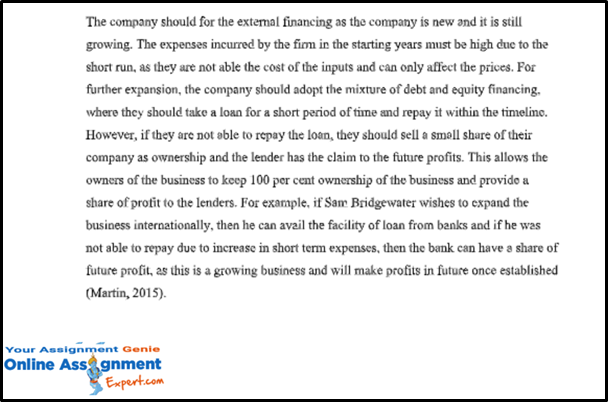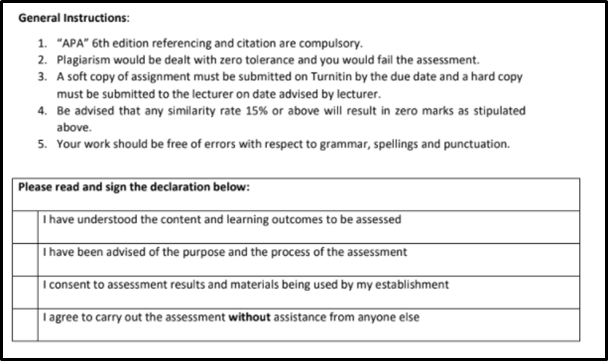This course will expose students to basic business processes and procedures, as well as improve strong business communication skills and train students for further learning. Setting a clear roadmap about where you and your company are heading and how to accomplish targets is what business strategy is all about. It also entails ongoing surveillance to ensure that you stay on board.
A business strategy is required for any company, from a one-person, part-time operation to a large organisation. The daily strategic strategy benefits you in the following ways:
Create a company that better matches you and your lifestyle by having a strong vision of where you want to go and how you want to get there. Students are required to Introduction to Business in New Zealand recognize your existing business knowledge and any holes.

What Are The Common Tips For A Business Planning?
When the main stakeholders of an organisation sit together and write down all of the priorities, plans, and steps they intend to take to ensure the company's success, stability, and progress, this is known as business planning.
A business strategy may contain a variety of items, but it usually includes the following:
- A summary of the company — brand, products or services offered, sales, main stakeholders.
- Objectives and a summary of your market — your customers, industry, and the number of people who can buy your product or service your marketing campaign — how you'll attract customers, and the cost of doing so competitor research — who the competitors are, how their strengths and disadvantages relate to yours, and how you can gain a comparative advantage.
- Be specific and centred on what you plan to accomplish; this will allow you and your colleagues to work together on a common goal.
- Choose the sort of business strategy that fits best for you – a script may be preferable, or a business canvas may be preferable.
- Keep it quick, easy, and straightforward.
- Keep your targets practical and in step with the state of the economy and the business.
- To find helpful business tools and figures, go to Stats NZ's Info for Business website.
- To obtain valuable market info, contact Stats NZ.
- Get out there and talk to your clients and figure out how your stuff works for them and if it's something they'd be willing to pay for.
In the course DBM501- Market preparation can take a variety of forms. It is a type of business strategy where upper management gets together to prepare for a company's future. Usually, strategic strategy means compiling proposals in a structured business plan that outlines an overview of the company's present situation, as well as the state of the broader sector, as well as specific actions the company may take to increase results over time.
What Are Business Planning Tips?
- Schedule arrangements in your calendar to do business planning; it's something you should do on a regular basis to keep track of your progress.
- To help you visualise the benchmarks, you're working to achieve, set short-, mid-, and long-term targets.
- Do it offsite — getting away from your regular work can help you see things you wouldn't normally see.
- It's great to get your team involved in business planning, but it's not something you should delegate — it's critical for the owner or manager to be involved in determining the company's direction.


Mistakes That You Should Avoid In Your Business Plan
When key stakeholders review the state of their business and make plans for how to improve it in the future, this is known as business planning.
Corporate strategy should not be a one-time event; it should be a continuous process of self-evaluation and planning. Business planning isn't just about increasing sales; it can also address issues like disaster preparedness and power transmission after an owner retires.
Avoid the following common blunders:
- Getting caught up in the day-to-day operations of the company without pausing to consider the future.
- Rather than setting clear goals, I react to things as they arise.
- Putting time and money into things that aren't part of your value proposition — a concise statement that explains how your product or service solves problems for customers.
- Making a business plan that will be put on the shelf and never used.
- Not checking in on how you're doing with your plan on a regular basis.
The DBM501 has been solved by our team of experts in a very effective way, and you can get a fresh solution to your assignments from us at any time. We would love to help you with the assignments along with better quality.
How can we help students with Business Plan assignments?
Our specialists are capable of dealing with a wide range of difficult transportation and task issues. They've been providing assignment assistance for a long time and have extensive expertise in this area. Our entire faculty is well-educated and has years of practical expertise in the area of transportation and assignments.
We also provide our students with a 24-hour service so that they can reach our specialist faculty group at any time. Regardless of the time of day or night, our entire faculty is open to our students and ready to support them with their assignments.
Data that is not plagiarised: We have a thorough understanding of the standards and regulations that academic institutions observe. Even a 1% trace of plagiarism will result in the whole assignment being rejected and contains numbers that are included in the final grade.
Round the clock: We recognise why our students' minds start telling them of an assignment to be sent or an exam to pass just as they are about to retire to their beds. To cope with panic attacks, we have a dedicated Customer Service team that is available 24 hours a day, seven days a week, to help you with any problem.
Proofreading: We have a selection of proofreaders on staff. We double-check the assignments written by our professional authors for any spelling or grammatical errors.
Payments are easy: We have a website that is simple to browse and scan, allowing students to log in and make payments with ease. We offer a variety of online payment solutions, including Internet Banking, NEFT, RTGS, and even paying with their credit or debit cards directly to access our Introduction to Business in New Zealand
assignment help.



